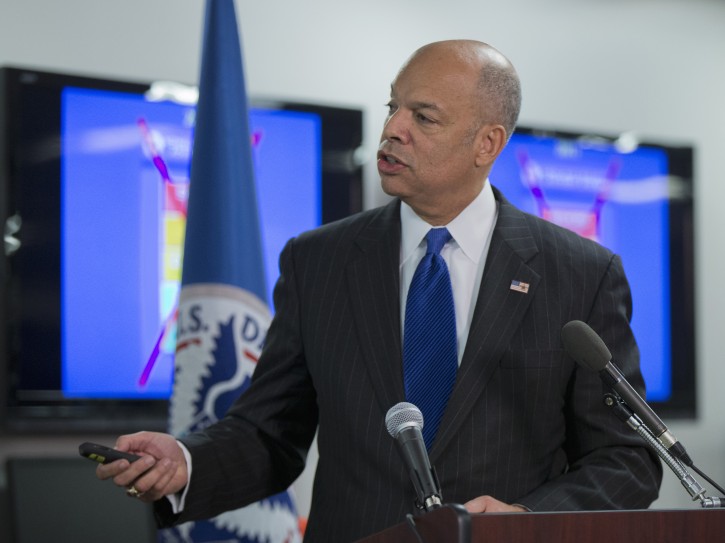
Washington – U.S. Homeland Security Secretary Jeh Johnson said on Wednesday that his department has been consulting social media in reviews of immigration applications since early this year, hitting back at criticism that U.S. authorities are not doing enough to weed out potential security threats.
The Department of Homeland Security has been criticized over reports it did not routinely consult social media during the vetting process for visa applications.
Questions arose after it came to light that one of the shooters in the Dec. 2 killings of 14 people in San Bernardino, California, Tashfeen Malik, entered the United States on a K1 or ‘fiancee’ visa. The Los Angeles Times has reported she had pledged her support to Islamic jihad in a private Facebook post.
Johnson said his department began consulting social media early this year before granting certain immigration benefits but did not specify which ones.
“We had policies in place regarding consulting social media which in my judgment, particularly in this current environment, were too restrictive,” Johnson told reporters at the unveiling of a revamped terrorism alert system.
“Under my leadership as secretary, we in fact began to consult social media in connection with conferring various immigration benefits and we will be doing more of this,” he added. “Any reports or partial reports to the contrary are simply false.”
He noted DHS consults intelligence community databases and law enforcement databases when it does vetting for “a lot” of immigration benefits but said social media is also useful.
Monitoring of social media as a way to identify potentially violent extremists was hotly debated Tuesday night by Republican presidential candidates, with some candidates arguing for increased scrutiny of social media in terrorism investigations.
While there currently is no explicit order banning visa investigators from trawling applicants’ social media accounts, some agencies that process visa applications have been wary about doing so, an Obama administration official said.
Johnson denied reports there was a policy in place in 2014 that prevented agents from screening Malik before she entered the country.
“That would not be accurate,” Johnson said. He would not comment on the investigation but noted public reports that Malik made her posts under an alias.
On Tuesday, two dozen Senate Democrats sent a letter to Johnson calling on DHS to require social media background checks as part of the visa screening process.
As reported by Vos Iz Neias
